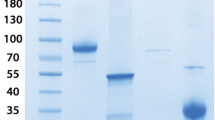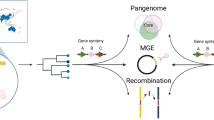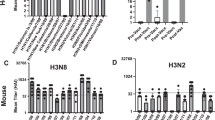Abstract
Streptococcus equi subspecies equi (S. equi) is a clonal, equine host-adapted pathogen of global importance that causes a highly contagious suppurative lymphodendopathy of the head and neck, more commonly known as Strangles. The disease is highly prevalent, can be severe and spread easily by visibly infected animals or by carrier animals that show no clinical signs of disease. Antibiotic treatment is usually ineffective. However, the majority of horses develop immunity to re-infection, suggesting that vaccination should be a feasible way to prevent the infection. Live attenuated vaccine strains of S. equi are available but adverse reactions have been reported and they suffer from a short duration of immunity. Thus, a safe and effective vaccine against S. equi is highly desirable. In this report, Welsh mountain ponies vaccinated with a combination of seven recombinant S. equi proteins, were significantly protected from experimental infection by S. equi, resembling the spontaneous disease. The protective antigens consisted of five surface localized proteins and two IgG endopeptidases. The results from a second vaccination trial indicate that the endopeptidases were important for good protection. The similarity of S. equi to other pyogenic streptococci suggests that our findings have broader implications for the prevention of streptococcal infections.
Similar content being viewed by others
Article PDF
Author information
Authors and Affiliations
Corresponding author
Rights and permissions
About this article
Cite this article
Guss, B., Flock, M., Frykberg, L. et al. Protective vaccination in the horse against Streptococcus equi with recombinant antigens. Nat Prec (2009). https://doi.org/10.1038/npre.2009.2985.1
Received:
Accepted:
Published:
DOI: https://doi.org/10.1038/npre.2009.2985.1



